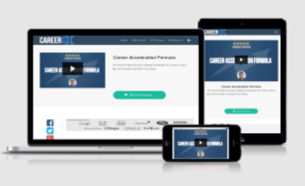
“Brownouts” – or loss of that fire in the belly – are sidelining star performers like yourself. Brownouts are so scary because they overtake you slowly and subtly. However, the effects can be catastrophic, both to your career and the results your company produces. That’s why influential business media, ranging from the Harvard Business Review to Inc., are publishing articles about how to identify this syndrome and pull out of the slump.
With classic burnout, motivation collapses. That is obvious. Soon enough you figure you better resign or are terminated. Likely you can’t even focus enough to put together a job search.
Signs of Disengagment
- That might start when visiting your company’s store. You simply don’t see the potential of staging special events such as fashion shows. Then you ignore that recommendation at a meeting back in headquarters.
- A few weeks later, you don’t accept an invitation to deliver a keynote speech on integrating retail channels.
- During a plane trip you watch a movie, not browse industry journals.
- Eventually, you are not excited when you wake up in the morning about what lies ahead at work. You used to play around with ideas for improving X or Y before you were even out of bed.
What’s putting out that fire in the belly?
The first step to getting your mojo back is fingering what’s triggering you to become less opportunistic. Here are the five major reasons:
A Disconnect with your superiors. At the top of the list could be the company Chief Executive Officer (CEO). Or if you are the CEO, it could be the Board of Directors. You sense you aren’t being heard.
Grandiose expectations. These usually involve the rewards you anticipate for pulling out all stops in getting the job done. You don’t assess your getting paid enough or promoted quickly enough.
Wrong job. Maybe you started out in a position that was the ideal fit for your talent and temperament. Then things changed through a restructuring or merger. Your current responsibilities don’t use your strengths.
Resentment. Yahoo CEO Marissa Mayer found that those who resented an aspect of their work situation would be the ones unwilling to give their all.
Stress. If you have come to feel overwhelmed in your work situation, you are going to be preoccupied with your own state of being, not problem-solving for the company.
So much for causes. Now, here are the six ways back to returning to the wunderkind you had been.
Re-lighting the fire
1. Embrace that you’re heading into trouble. Resisting the reality that you’re browning out will just drain you more. No, you don’t have to “confess” this realization with superiors, colleagues or subordinates. It’s your business only.
2. Learn how to sell, or beef up the skills you have. Often when executives are asked what’s the critical skill for succeeding in organizations, they will answer: the ability to persuade, that is, sell your ideas. Selling effectively requires a total integration of belief in what you are pitching, the right argument, tone and language for the right audience, appropriate body language and facial expressions and timing. Role play, video your performance and have trusted colleagues critique.
3. Stay in the now. The ultra hard-charging world of tech is learning how to keep the focus in the present. The leadership recognized that’s how results happen. It’s a disaster to project into the future including expectations of product home runs and wealth.
4. Give yourself permission to do something you love. At Yahoo, since Mayer is the boss she’s the one who gives permission to employees to do the one thing which is most important to them. It could be attending their children’s sports events or practicing for a marathon. That’s the key to preventing resentment. Since you’re the executive, it’s up to you to allow yourself to take the time for what really matters to you. That could be writing a book or taking a course in urban architecture.
5. Open yourself to a change of job. That might be to search within your company or outside it. In itself this kind of adventure could lift the brownout. After all, you are automatically appointing yourself Chief Marketing Officer (CMO) of a search for exactly the next right opportunity for you. Putting yourself out there entails getting to know yourself as a professional all over again. What are your current strengths? What is your number-one edge? What unique value have you created in your present job?
6. Take an “energy audit.” What causes one professional to have a meltdown can energize another. Moreover, stress triggers are often petty. It could be too much text messages coming in. It’s up to you to audit how your energy is being consumed and ways you can conserve more of it. In their book “Making Conflict Work,” Peter T. Coleman and Robert Ferguson describe how to regain control over your life, both professional and personal.
Preventing brownouts
Now you know. No matter how talented and successful executives like yourself are, you can and do experience brownouts. With disruption as the norm, the workplace will continue to place new demands on you. The challenge is for you to frame them as motivators versus triggers to disengage. That gives you a fresh kind of competitive advantage.
Written by Lisa Rangel, Executive Resume Writer
.














